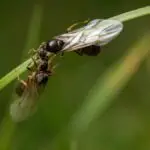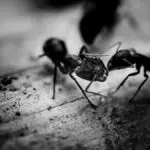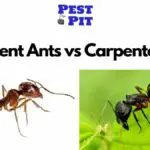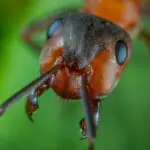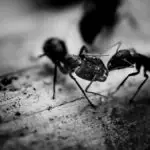Have you ever walked into your kitchen and noticed a long trail of tiny, determined ants marching across your counter? Or maybe you’ve opened a cabinet only to find a colony of ants feasting on a spilled cereal box.
Whatever the scenario, it’s never pleasant to discover these tiny intruders invading your home. But have you ever wondered why ants suddenly appear in your house in the first place? It can be frustrating to constantly battle these pests without understanding their behavior and biology.
This post will explore the fascinating world of ants and why they tend to invade our homes.
We’ll look at the factors that attract ants to your house and share some practical tips and tricks for getting rid of ants and preventing future infestations.
So, if you’re tired of sharing your home with these pesky little creatures, keep reading to learn more about why ants suddenly appear in your house and how you can reclaim your space.
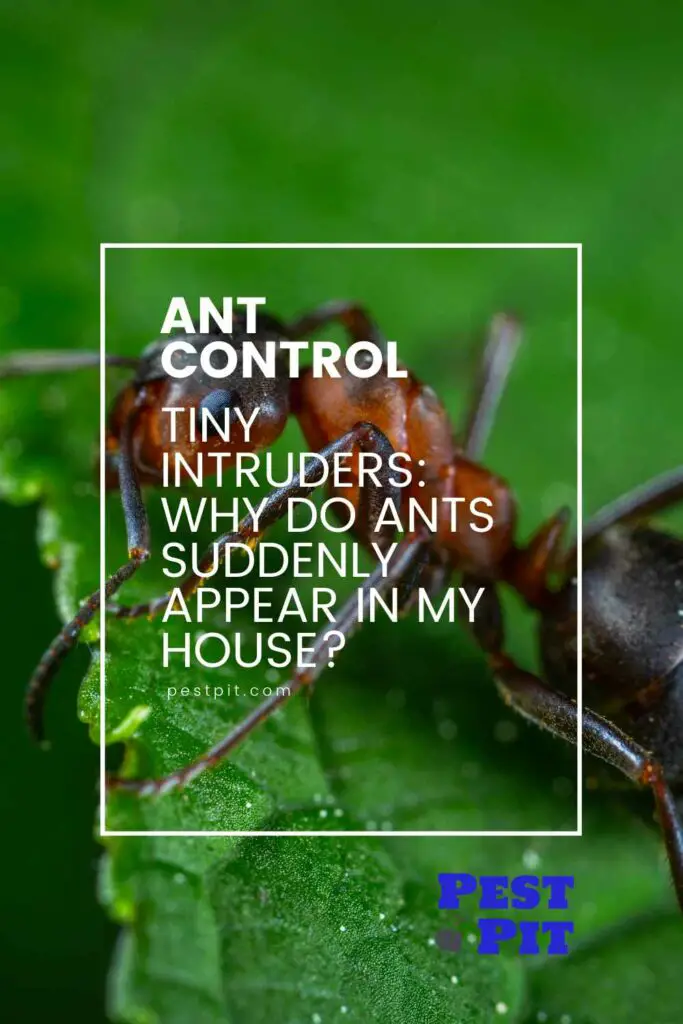
Why do ants suddenly appear in my house?
Ants are fascinating creatures with complex social structures and remarkable communication abilities. They work together in colonies to build nests, find food, and protect their queen.
However, as much as we admire their abilities, we don’t want them to reside in our homes. So, how do ants find their way into our houses in the first place?
Ant behavior and biology: how ants find their way into a house
Ants are experts at finding their way around their environment. They use a combination of visual cues and chemical signals to navigate their surroundings and communicate with one another.
When ants explore a new area, they leave a trail of pheromones behind them, which other ants can follow to the food or water source. This means that once a few worker ants discover a food source in your house, it’s likely that more will follow.
In addition to their communication abilities, ants are physically adept at getting into small spaces. They can squeeze through even the tiniest gaps and cracks and often build their nests in hidden, out-of-the-way spots like under floorboards, in walls, or behind appliances.
Environmental factors that can lead to a sudden ant infestation: moisture, food, shelter
While ants can undoubtedly find their way into a house independently, several factors can make your home particularly appealing.
One of the main things ants are looking for is food and water. They’re particularly drawn to sweet, greasy, or protein-rich foods, and they’ll seek out any spills or crumbs left behind on counters, floors, or cabinets.
Ants are also attracted to moisture. If you have any leaky pipes, standing water, or damp areas in your home, it’s likely to be a prime spot for ants to set up camp.
And finally, ants need a place to live, which means they’ll also be looking for shelter. Any cracks or gaps in your walls, foundation, or roof can provide an entry point for ants to make their way inside.
Seasonal patterns of ant infestations
Ants can be a year-round problem in some areas, but they tend to appear more seasonally in others.
In the spring and summer, ants are particularly active as they seek out food and water to bring back to their colonies. During the winter, ants may go into hibernation, but they’ll still look for warm, dry places to set up ant nests.
Understanding your area’s seasonal patterns of ant activity can help you proactively prevent an ant invasion.
Common ant attractions
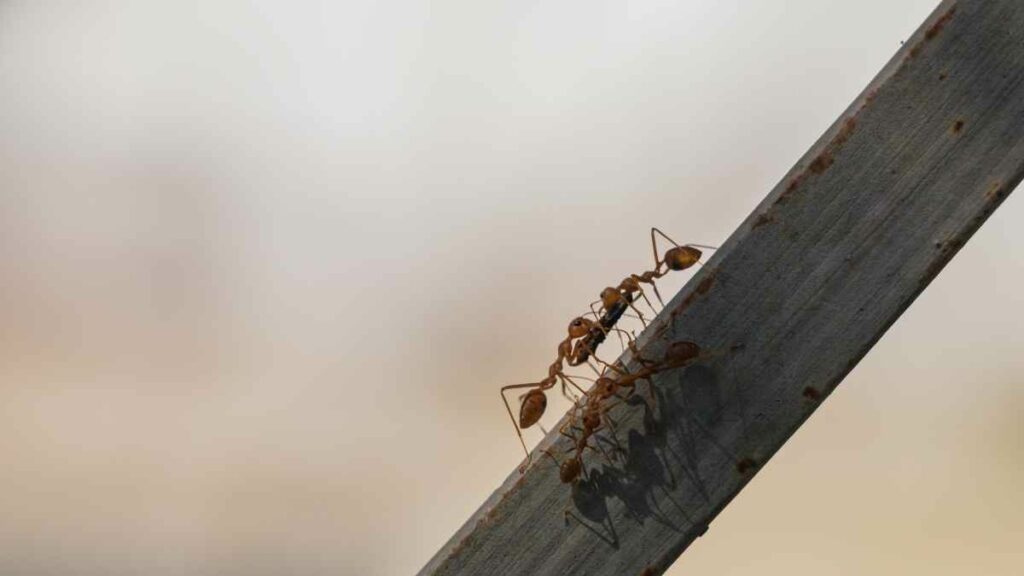
Food Source
Ants are attracted to various foods, with different species preferring different types of food. However, most ant species are attracted to sweet, greasy, and protein-rich foods. This is why ants often swarm around spilled soda, candy, or grease on your kitchen counter.
Water Source
In addition to food, ants also need water to survive. They are attracted to areas of your home with excess moisture, such as leaky pipes, damp basements, or wet kitchen sponges.
Common household areas where ants can find food and water include the kitchen, pantry, and bathroom. In the kitchen, ants are attracted to sugary substances like honey, syrup, and jam. They also love greasy foods like cheese, meat, and butter. In the pantry, ants are attracted to grains, cereals, and baked goods.
In the bathroom, ants are often attracted to standing water in the sink or shower. They can also find water in leaky pipes or clogged drains. Additionally, ants are attracted to dirty dishes and open food containers.
Other factors that attract ants include pet food and outdoor sources like compost piles and trash cans. Ants can quickly become a nuisance if they find a steady source of food and water in your home. The next section will review effective ways to eliminate ants in your house.
Effective ways to get rid of ants in a house
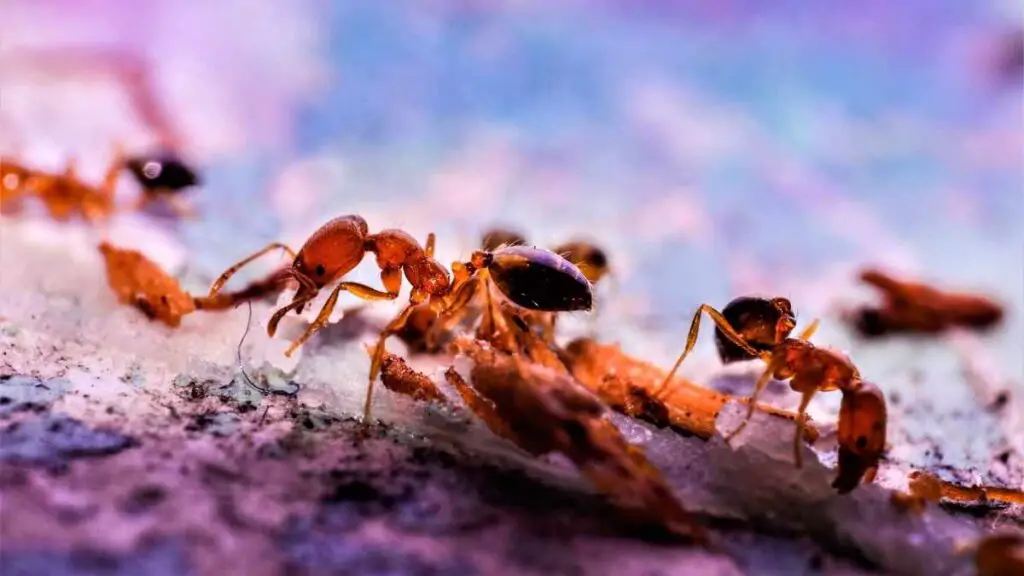
Prevention is vital when it comes to controlling ant infestations. Here are some tips to prevent ants from entering your home:
- Seal cracks and gaps in your home’s exterior walls using caulk or weatherstripping.
- Keep your house clean and free of food debris.
- Store food properly in sealed containers or the refrigerator.
- Fix leaky pipes and clogged drains to reduce excess moisture.
- Keep pet food dishes clean and store them away from human food.
If you already have an ant problem, there are several natural and DIY methods that you can use to get rid of the ant colonies. Here are a few options:
- Vinegar: Mix equal parts vinegar and water in a spray bottle and use it to spray areas where you have seen ants. The pungent smell of vinegar will repel them.
- Lemon juice: Squeeze fresh lemon juice and wipe it on surfaces where you have seen ants. The acid in the lemon juice will help repel them.
- Peppermint oil: Mix a few drops of peppermint oil with water in a spray bottle and use it to spray areas where you have seen ants. The strong scent of peppermint will keep them away.
- Borax and sugar: Mix equal parts of borax and sugar and sprinkle it in areas where you have seen ants. The ants will be attracted to the sugar and ingest the borax, killing them.
- Honey and borax: Mix honey and borax into a paste and spread it on paper or cardboard. Place the traps in areas where you have seen ants.
- Baking soda and sugar: Mix equal parts baking soda and sugar and sprinkle it in areas where you have seen ants. The ants will be attracted to the sugar and ingest the baking soda, killing them.
If natural or DIY methods do not work, you may need to call in a professional pest control service. They can use bait stations, sprays, and traps to eliminate the ant colony and prevent future infestations.
Conclusion
As you can see, having ants in your house can be a frustrating experience. However, understanding the reasons behind their sudden appearance can help you prevent and manage future infestations.
To effectively get rid of ants crawling around in your house, following prevention tips such as sealing cracks and gaps, keeping your home clean, and storing food properly is essential. Natural ant repellents can also be effective. Professional ant control methods such as bait stations and sprays may be necessary in more severe cases.
Remember, if you have noticed ants in your house, acting quickly to prevent them from worsening is essential. So don’t hesitate to try different methods until you find the best solution.
In conclusion, ants may be tiny intruders, but they can cause significant problems if left unchecked. By understanding the reasons behind their sudden appearance and taking preventative measures, you can keep your house ant-free and enjoy a peaceful, pest-free home.

